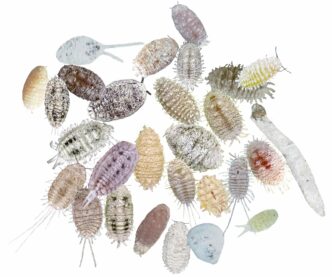
CLEMSON — Mosquitoes are breeding in abundance in floodwaters left behind by Hurricane Florence, prompting officials throughout the Pee Dee region to step up pesticide treatments to control them.
Experts with the Clemson University Extension Service and Regulatory Services units are advising beekeepers to be aware of increased sprayings and prepare to cover their hives if necessary while sprayings are in progress.
“The potential for human health impacts due to mosquito born illnesses is significant and serious, and we’re trying to help provide awareness that mosquito abatement programs are underway,” Ben Powell, a Clemson Extension agent in Georgetown, advised members of the Blackwater Beekeepers Association. “Due to unprecedented flooding and an exploding mosquito problem, the Horry County Mosquito Control Program will be very active in providing area suppression using both ground and aerial equipment.”
Increased mosquito abatement is either planned or is being discussed in more than half a dozen counties from Chesterfield to the coast, said Josh Weaver, agriculture compliance specialist with the Department of Pesticide Regulation (DPR), a regulatory agency based at Clemson.
Horry County government officials have approved county-wide mosquito spraying to begin Monday, Oct. 1, but, weather permitting, the Green Sea area of the county could be sprayed earlier, Weaver said. Georgetown County will start spraying Sunday from the South Santee River to McClellanville. Spraying in Georgetown County could continue into Monday or Tuesday of next week, he said.
“Mosquito abatement sprays are applied in the evening, not during the day, so we’re advising people in affected areas to be aware and stay indoors, keep pets inside and mitigate your exposure,” Weaver said. “We don’t want to scare anybody, but it’s probably not wise to run outside and stare up at an aerial applicator.”
Pesticide applicators in Horry County are equipped with maps that indicate known beehives and have drawn a half-mile radius around them to prevent damage to the bees, Weaver said. However, he urged that beekeepers be prepared to cover their hives as an added precaution.
“Horry County and contract applicators will make every effort to avoid spraying around registered bee hives and organic farms, but it is imperative that beekeepers take action to protect their hives during this process,” Powell added. “The county is updating its website regularly to notify citizens where spray activities will be conducted.”
Not all counties are equipped with such details, Powell said. However, beekeepers can register their hive locations through an online program Clemson Regulatory Services operates to allow beekeepers to indicate where their bees are and pesticide applicators to indicate where they will be making pesticide treatments.
“We’re trying to protect the honeybee. That’s what this is all about,” said Brad Cavin, who leads apiary inspections for the Department of Plant Industry, which, like DPR, is a Clemson unit that carries out state regulatory functions. “We want to develop a partnership of farmers, beekeepers, pesticide applicators to identify where bee yards are located.”
The system is password protected for confidentiality and privacy; beekeepers can log into the system to load geographic data on their hives and see planned pesticide applications nearby without anyone other than pesticide applicators accessing their information or hive locations.
END






